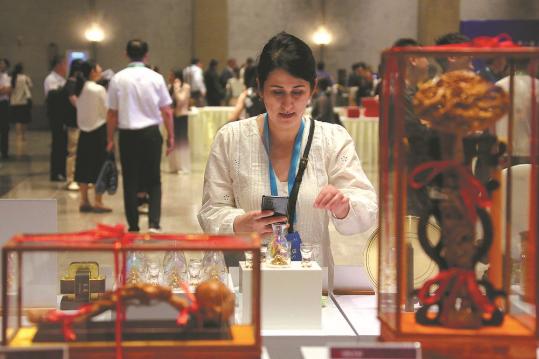RIGHT BG

This year's summer camp of the Mandarin Excellence Program kicked off in Beijing last week, with the largest group of students from the United Kingdom visiting China since the program was launched in 2016.

This year's forum has the theme "Traditional Culture and Modern Civilization", aiming to draw wisdom from traditional culture to find solutions to global challenges.
 京公网安备 11010202009201号] [京ICP备05004340号-1]
京公网安备 11010202009201号] [京ICP备05004340号-1]